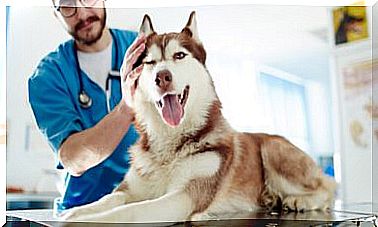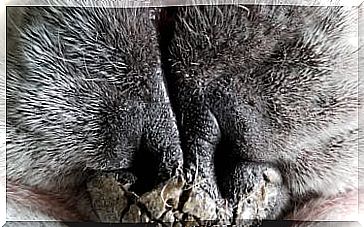The Bad Smell Of Pets: How To Treat It
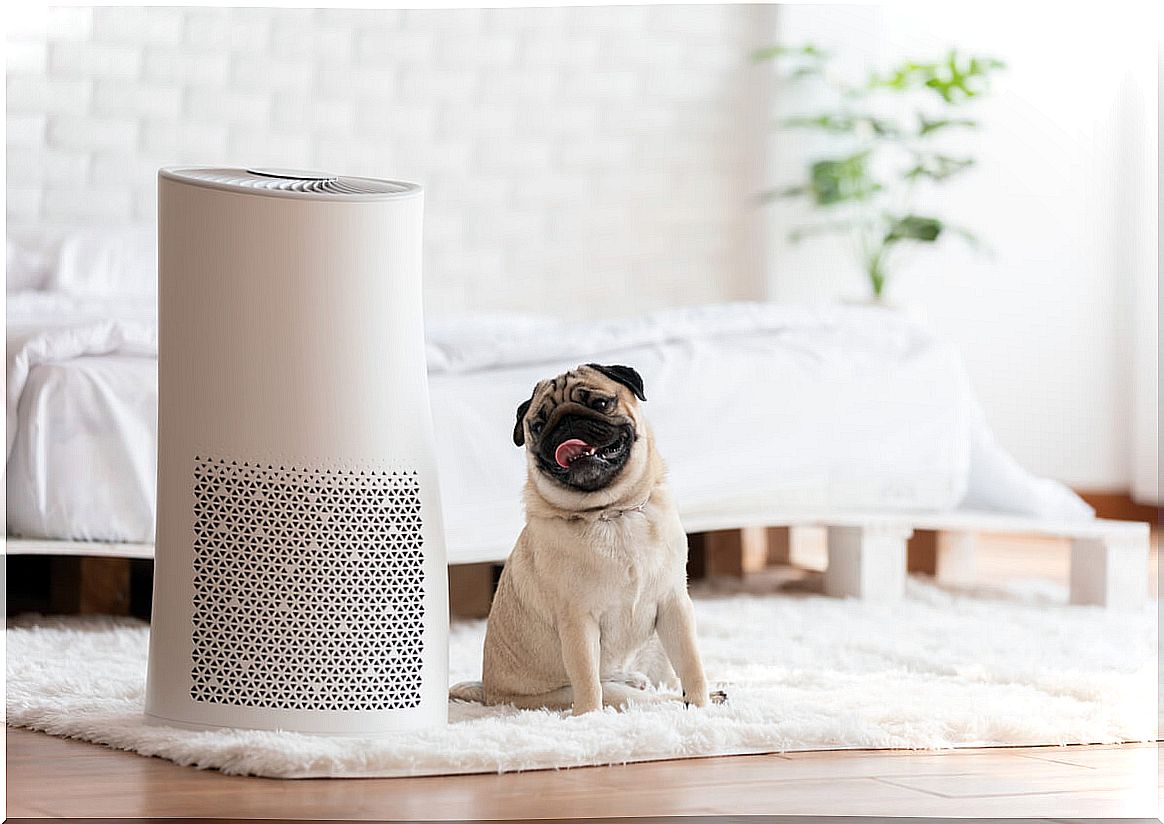
Before discussing pet odor, it is important to understand that in nature, body essence has a purpose. In fact, smells are essential in species recognition, mate selection, and social interaction. Therefore, we must make an effort to interpret the importance of pet body odor.
Too often, guardians insist on having a pet with a pleasant smell or, in the worst case, an unscented pet. A question that can go beyond what is reasonable. However, it is very important to determine if the smell of pets is an indication of a disease or if it falls within the range of normal.
Guardians need to be attentive and observant, since, for example, the presence of a very unpleasant or unusual smell from a cat is almost always a sign that something is wrong.
When the guardian detects a bad smell from the pets, but the vet does not
This circumstance is observed more frequently in dogs than in cats. It may happen that in a pet without physical evidence of illness, the veterinarian does not detect unusual odors. In these cases, you can recommend the use of a shampoo adapted to the pet’s skin, with a pleasant aroma.
It is important to note that another common scenario in consultation is the complaint of an unpleasant smell that appears “from time to time.” Guardians will typically describe a musky, “fishy” odor that occasionally emanates from your pet. In this situation, anal sac discharge is the most likely culprit.
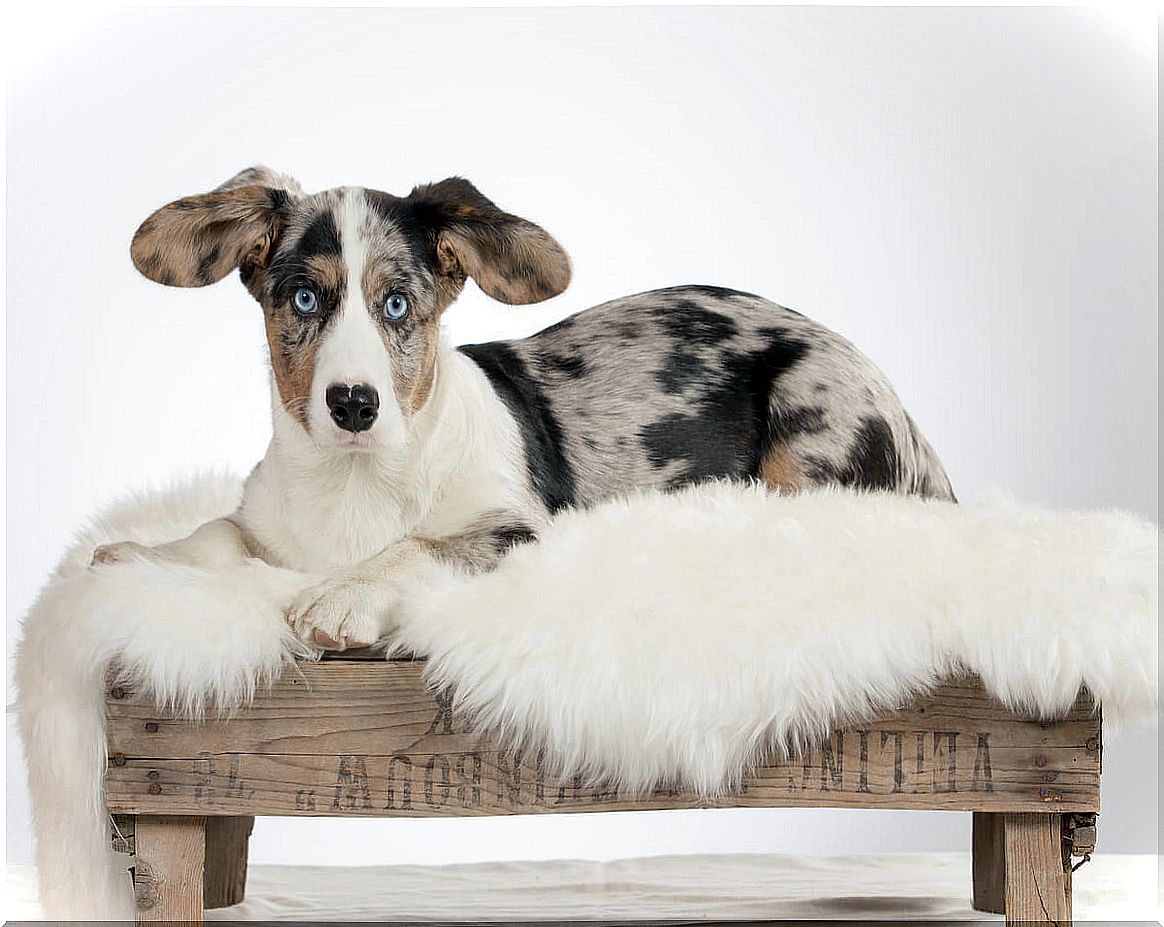
What are these anal sacks?
We must bear in mind that cats and dogs have two small sac-shaped glands just inside the anus, which produce a strong-smelling secretion. Normally, these sacs are emptied when defecating. The secretion seems to contribute to the marking of the territory made by carnivorous animals.
It can happen, occasionally, that this secretion accumulates until the sacs are full. As a consequence, the sacks can empty their contents into the fur or the immediate environment, especially if the animal is startled or excited.
It is a natural occurrence, so the occasional expression of the anal sacs is not a cause for concern. However, other anal sac diseases, such as abscesses or tumors, are clearly a concern and can lead to a constant odor.
When pet odor is due to an obvious source or cause
In this case, the vet should be able to tell right away what is causing the odor. It can be urine, feces, bad breath, or have been sprayed by a skunk. What happens next can range from lab tests to simple recommendations on how to get rid of skunk odor.
Once the problem is elucidated, the appropriate treatment will be established. Commonly, poor dental health is the most common cause of obvious pet odor. Dental disease, oral cancer, and kidney failure are the most common causes of bad breath seen in veterinary visits.
When a systemic disease is the cause of the odor
Keep in mind that urine and feces are common sources of odor in animals. It is common for pets in pain to neglect their grooming and sanitary habits. In this scenario, it is common for animals to get dirty due to urinary or fecal incontinence.
Sometimes the pet cannot remove it from the coat due to the inability to groom itself properly. It may happen, for example, that a cat cannot groom its anal and genital region due to obesity. Arthritis is another reason for trouble getting by.
In some cases, cats develop an unpleasant odor because they have simply stopped grooming, resulting in greasy, matted fur. This should be a warning sign to guardians and veterinarians that a systemic disease, such as diabetes or hyperthyroidism, may be present.
The bad smell of pets associated with skin disorders
Although many skin conditions are obvious, others require vet examination. Skin disorders are the most common causes of unpleasant odors in dogs. Fortunately, smelly skin conditions are much less common in cats.
We are talking about bacterial and fungal infections of the skin and canine ears, as these types of infections are seen less frequently in cats. But, when they are present, they rarely produce odors as offensive as those seen in dogs.
However, it is not an infallible rule. Some cats have terribly infected ears, which can literally smell across the room, while others escape detection until you kiss the cat on the head or snuggle close to it and the scent becomes apparent.
Seborrhea (alteration of the sebaceous glands) is another common cause of bad odor in dogs. Also, cats with autoimmune diseases, in which the immune system attacks the feline’s skin, can have an unpleasant odor.
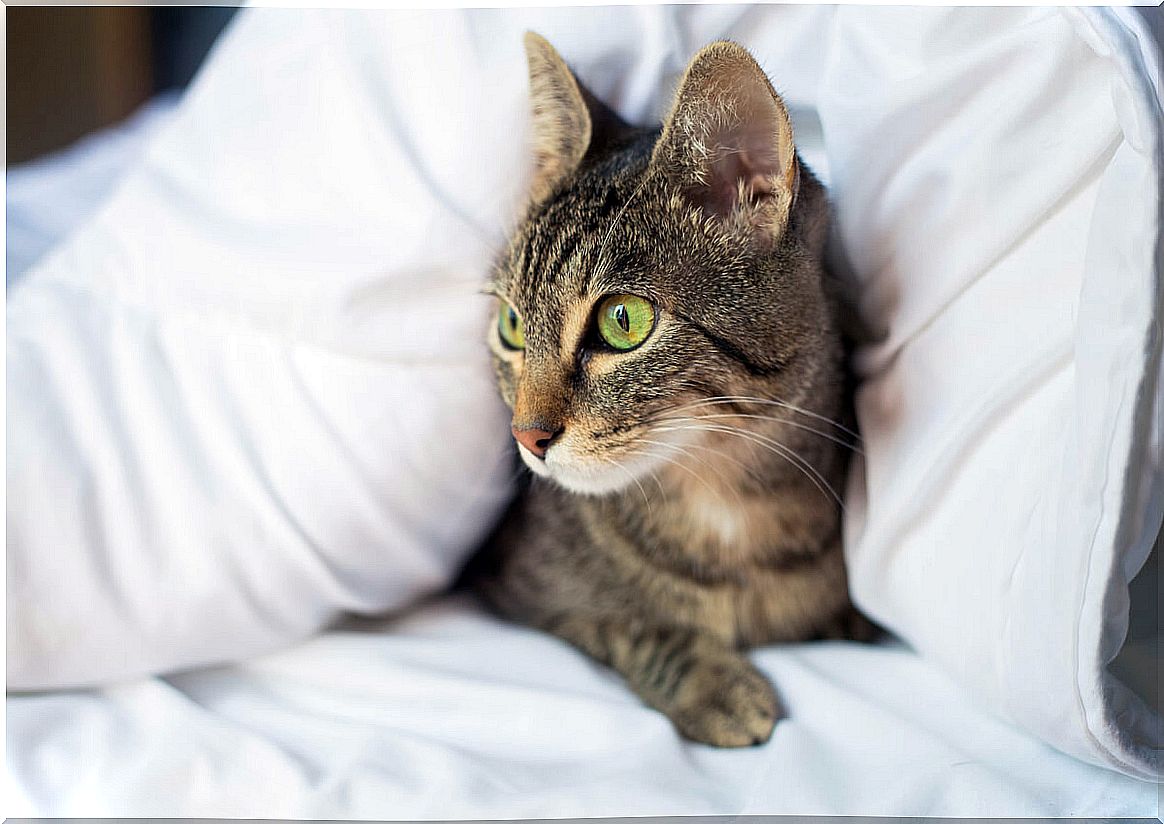
As you can see, the presence of an unusual or offensive odor could be a warning sign of health problems in your pet. Of course, whether it’s an oral problem, a systemic disease, or a skin disorder, a visit to the vet is necessary.
